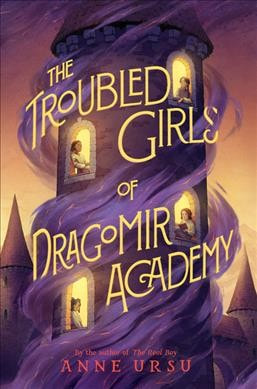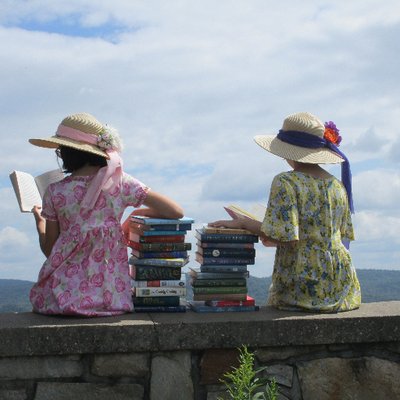
Everyone in the village is sure that Luka Lupu--clever, kind, and full of wisdom--will be a sorcerer one day, and help protect Illyria against the ferisome Dread. Even his sister, Marya, believes that, although no one would listen to her if she didn't. Stubborn, opinionated, and, worst of all, a girl, the Lupus have no expectations for Marya. Her parents only hope that when the sorcerers who test promising boys for magical potential find it in their Luka, Marya will not be too great of an embarrassment.
But even these low expectations are dashed when the sorcerer's test goes horribly wrong, and Marya is sent off to Dragomir Academy--a place intended to instill good manners into troubled girls.
At first, Marya finds herself at Dragomir as she always has been: incompetent and full of mistakes, somehow unable to heed the rules. Troubled. But as time passes and Marya learns more about Dragomir and her fellow students, she begins to wonder whether facts she's been taught all her life are true after all--and what Dragomir Academy is really intended for.
The Troubled Girls of Dragomir Academy is simultaneously an engrossing, nuanced story full of magic and mystery and a deep, thoughtful exploration of the stories our society tells us--and who, ultimately, they truly serve. Anne Ursu weaves a tale led by a strong, flawed protagonist who finds herself coming to terms with a world that would rather she stay silent, and a society designed to keep her that way. This reflective, almost philosophical undertone--perhaps best epitomized by the lingering question, 'who does the story serve?'--creates an undercurrent of questioning and cross-examining patriarchy and predominant narratives that both inspires and empowers, and never even considers veering into a preachy, overt, or otherwise contrived vein. Much like the slightly older Girls at the Edge of the World, it evolves and intertwines with the narrative, giving the story new resonance without ever stealing away its strong and resounding voice and plot. I also love the story and plot itself; its unexpected twists, straightforward yet evocative language, distinctive characters, and beautifully paced unfolding mystery kept me swept up in the story until long after the final page. I highly recommend The Troubled Girls of Dragomir Academy to readers ages ten and up.



 RSS Feed
RSS Feed
